The National-Security State and the Kennedy Administration
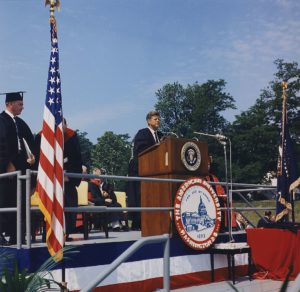
The national-security establishment’s assassination of President John F. Kennedy was one of the pivotal events in our lifetime, and it continues to have an adverse impact on American life today. This conference will be oriented toward people who are not well-versed in the assassination and who wish to gain a deeper understanding of it.
The conference will present an easy-to-understand introduction to what happened and why. Consider it a primer on the Kennedy assassination. Attendees will learn about President Kennedy’s foreign policy and how it was so different from that of both his predecessors and successors — and why the Pentagon and the CIA considered it to be such a grave threat to national security. Attendees will also learn about the fraudulent nature of the autopsy that the national-security establishment performed on the president’s body on the evening of the assassination and how it leads to an understanding of the assassination itself.
The conference will consist of a weekly series of online presentations by various speakers, beginning Wednesday evening, March 3, and continue every Wednesday evening through April 21. By the time it is over, participants will have a good grasp of what happened on that fateful day in November 1963 and why it is so critically important today.
To register for this webinar series, fill out this form:
Read FFF president Jacob Hornberger’s synopsis of the conference.
Conference Schedule
Session Descriptions
Jim DiEugenio: President Kennedy and the Third World
Jim DiEugenio has been studying President Kennedy’s policies in the Third World for over seven years. His talk will trace the genesis of Kennedy’s reformist ideas in that area from 1951 onward to his presidency. He will then review four specific areas of the globe where the listener can distinctly see a break with the previous Dwight Eisenhower/John Foster Dulles view of the Third World. These areas would be the Congo, the Middle East, specifically towards Nasser in Egypt, Achmed Sukarno in Indonesia, and the Alliance for Progress in Latin America. He will show not just how Kennedy attained his ideas, but also how he attempted to enact his policies once in office, and then how his concepts were then done away with after his presidency.
Mike Swanson: JFK, the Vietnam War, and the War State
The Vietnam War has been portrayed as either a war that the United States military was not allowed to win or a bad mistake carried out by people who simply had a misunderstanding of the world or too much confidence in American power. At first, the Kennedy administration was portrayed this way in books such as The Best And The Brightest, but then researchers and writers such as John Newman and Peter Dale Scott found that Kennedy planned to withdraw troops from Vietnam. By looking at the course of American policy after World War II up to the first few months of the Kennedy administration we can get a different perspective on it – that makes clear how and why Vietnam became a central focus of the Joint Chiefs of Staff and the military-industrial complex in the first place and what was driving the American war state in the early 1960s.
John Newman: JFK and the Cold War: Deception, Treachery, and the Struggle for Power
This 90-minute event will feature a live introduction with two live Q&A sessions after two 45-minute recorded sections—each containing a series of three briefings:
SECTION ONE:
- PART 1—The Kennedys, King, and the Race Issue—The Election of 1960
- PART 2—The Cuban Cataclysm of 1961—The Origin of JFK’s Struggle with the Deep State
- PART 3—The 1961 Berlin Crisis—The Most Dangerous Place on Earth
SECTION TWO:
- PART 4—JFK and Vietnam, 1961 to May 1962—When the Big Lie Started
- PART 5—The 1962 Shipwreck in Cuba—The Unleashing of Generals Lemnitzer and Taylor
- PART 6—JFK and Vietnam, May 1962 to November 1963—The Run-up to the Assassination President Kennedy
This multifaceted exposition, for the first time, pulls together the leads and threads from five of Dr. Newman’s publications: JFK and Vietnam (2017 Edition); and his ongoing series on the Assassination and Presidency of John F. Kennedy: Vol I, Where Angels Tread Lightly (2017 Edition); Vol II, Countdown to Darkness; Vol III, Into the Storm; and Volume IV, Armageddon (to be published in 2021). Some of Dr. Newman’s new revelations about the struggle between JFK and the Pentagon in the upcoming Vol IV are present in Parts 5 and 6 of Section Two.
Jefferson Morley: Morley v. the CIA
This is the story of my lawsuit seeking certain JFK records. The ebook is both a historical investigation of CIA psychological warfare operation (AMSPELL) involving Oswald in 1963 and legal story about how the CIA uses the FOIA to thwart full disclosure around the assassination in 2021, with the blessing of the courts. In my presentation, I’ll talk about how the lawsuit came about: the remarkable role of Jim Lesar, an affidavit from Judge Tunheim, the testimony of Dan Hardway, an interview with AMSPELL agent Jose Antonio Lanuza, and the opinion of Judge Karen Henderson. I’ll also talk about how to finish the JFK investigation in 2021. Questions welcome. Discussion to follow.
Douglas Horne: The JFK Medical Coverup
Most of the JFK medical evidence would not be admissible in court today. Why is this so? Why is the official collection of photographic and x-ray evidence so tainted and subject to question? What was observed at Parkland Hospital in Dallas, Texas on November 22, 1963 where JFK was administered emergency treatment in an attempt to save his life? What happened six hours later at Bethesda Naval Hospital in Maryland, where the autopsy of record was performed? In spite of two official investigations into the assassination, and two forensic review panels, significant questions about the manner of JFK’s death and about his autopsy remain unresolved. The state of the JFK medical evidence is more problematic today than ever; this presentation will examine why this deplorable state of affairs exists.
Michael Chesser: Reviewing the Autopsy X-rays
The military pathologists who performed the autopsy of President Kennedy concluded that only one bullet struck the skull, entering low at the back of the head, causing a massive exit wound at the top right side of the skull. In 1968, in response to mounting criticism of the Warren Commission medical evidence, Attorney General Ramsey Clark appointed a medical panel to review the medical evidence. This panel, and subsequently the Rockefeller commission and the House Select Committee on Assassinations (HSCA) medical panel, proclaimed that the pathologists at Bethesda who examined the wounds of President Kennedy had made an incredible mistake, and the panel moved the location of the entry wound up 10 cm higher on the back of the skull. Consider that the continental USA resembles the side view of a human skull, and this would be like mistaking San Diego for Seattle. This is all one needs to know to realize that something was seriously amiss with the autopsy evidence. These pathologists and radiologists had an impossible task, which was to make the autopsy x-rays and photographs fit the lone gunman hypothesis posed by the Warren Commission.
This presentation is based upon viewing of the autopsy x-rays and photographs at National Archives and Research Records II in College Park, Maryland. It will focus on the x-rays as stand-alone evidence, and it will place the x-ray evidence in the context of the autopsy photographs and the eyewitness accounts of the medical professionals in the Parkland emergency room and the Bethesda morgue.
David Mantik: JFK’s Head Wounds
Imagine: The dilemma for the autopsy pathologists on 11-22-63
The(ir) Solution: “Improving” the autopsy photographs and X-rays
Writing a misleading autopsy report (multiple times)
Elusive consistency on the posterior skull entry site
Pretending not to know about the throat wound
Including “eyewitness” statements in the autopsy report
Also: They did not see the Harper Fragment
The Autopsy Radiologist: John Ebersole—my recorded interview (now at NARA)
The Radiology Technologist: Jerrol Custer
Subsequent Government Radiologists:
How they misled us
What they missed
The Harper Fragment: 15 Clues for its Occipital Origin
These are all consistent with a frontal shot.
Douglas Horne: JFK’s War with the National Security Establishment
Who were JFK’s major opponents and adversaries within his own government, with regard to the making of foreign policy at the height of the Cold War with the Soviet Union? How did his overall approach to the Cold War change during his Presidency, and why? Since the cover-story of a “lone nut” assassin firing from behind JFK’s limousine is not supported by the medical evidence, an examination of the serious internal conflicts within his own administration over the “making of the sausage” of foreign policy is extraordinarily relevant to what truly happened in Dealey Plaza in November 1963.
Jacob Hornberger: Regime Change: The JFK Assassination
In 1960, John Kennedy came into the presidency as pretty much a standard proponent of the Cold War against the communist world. By the time the Cuban Missile Crisis was over, however, Kennedy had achieved a breakthrough that caused him to recognize the Cold War as a dangerous and destructive racket. By the time JFK declared an end to the Cold War in his famous Peace Speech at American University in June 9163, he was in a full-fledged war with the national-security establishment over the future direction of America. In this talk, Jacob will place the JFK assassination in the context of other U.S. national-security regime-change operations both before and after the Kennedy assassination and will highlight aspects of the JFK autopsy that lead inexorably to but one conclusion: a domestic national-security regime-change operation that was conducted on November 22, 1963.
Speaker Bios
Jim DiEugenio
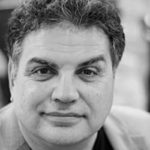 Jim DiEugenio is a graduate of California State University Northridge, with an MA in Contemporary American History. From 1995-2000, he was the editor/publisher of Probe magazine which examined the assassination of the sixties: JFK, RFK, and MLK. He is currently the editor/publisher of the web site Kennedysandking.com.
Jim DiEugenio is a graduate of California State University Northridge, with an MA in Contemporary American History. From 1995-2000, he was the editor/publisher of Probe magazine which examined the assassination of the sixties: JFK, RFK, and MLK. He is currently the editor/publisher of the web site Kennedysandking.com.
He is the author/co-editor of three books:
- The Assassinations, co-editor (2003: Feral House)
- Destiny Betrayed: JFK, Cuba and the Garrison Case (2012: Skyhorse)
- The JFK Assassination: The Evidence Today (2016: Skyhorse)
He is the writer of two documentaries:
- “The New Documents” AV essay on the DVD for JFK
- “JFK: Destiny Betrayed” four-part documentary by Oliver Stone
He has written scores of magazine articles, both online and print for Consortium News, From the Wilderness, the online magazine Cover Action, and the print magazine garrison.
Michael Swanson
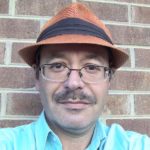 Michael Swanson is the author of the book The War State: The Cold War Origins Of The Military-Industrial Complex And The Power Elite, 1945-1963. He received a Master’s Degree in history from the University of Virginia and then dropped out of the college’s Ph.D. program to enter the business world. He ran a hedge fund from 2003 until 2006 and runs the website WallStreetWindow.com, which focuses on geopolitics and finance.
Michael Swanson is the author of the book The War State: The Cold War Origins Of The Military-Industrial Complex And The Power Elite, 1945-1963. He received a Master’s Degree in history from the University of Virginia and then dropped out of the college’s Ph.D. program to enter the business world. He ran a hedge fund from 2003 until 2006 and runs the website WallStreetWindow.com, which focuses on geopolitics and finance.
Swanson returned to his study of history with his book The War State. He has just released a new book entitled Why The Vietnam War? that focuses on the Vietnam War from the end of 1945 to the first few months of the Kennedy administration. It’s now available on Amazon.
Dr. John Newman
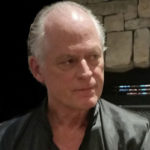 Dr. John Newman is Adjunct Professor of Political Science at James Madison University. Previously, from 1992 to 2011, he was Honors Professor at the University of Maryland Honors College. He is a career retired U.S. Army intelligence officer who served as a strategic intelligence cryptologic analyst before accepting a special two-year appointment to become Military Assistant to the Director, General William Odom, at the National Security Agency.
Dr. John Newman is Adjunct Professor of Political Science at James Madison University. Previously, from 1992 to 2011, he was Honors Professor at the University of Maryland Honors College. He is a career retired U.S. Army intelligence officer who served as a strategic intelligence cryptologic analyst before accepting a special two-year appointment to become Military Assistant to the Director, General William Odom, at the National Security Agency.
Dr. Newman obtained his BA in Chinese Studies (1974), MA in Far Eastern Studies (1978), and PhD in Modern Far Eastern History (1992) at George Washington University. The thesis of his PhD dissertation held that President Kennedy was withdrawing the American advisors from Vietnam at the time of his assassination. It was the first dissertation anywhere to overturn a long-held orthodoxy and break new ground on this subject. Dr. Newman defended it with Honors.
Since its publication as a book, JFK and Vietnam (1992, 2017), Dr. Newman’s work has received high acclaim:
“This commanding essay in critical history is the most authoritative account anywhere of President Kennedy’s Vietnam policy–and it is fascinating reading as well.” — Arthur Schlesinger Jr., Special Assistant to President Kennedy
“A brilliant, meticulously researched and fascinating account of the decision-making which led to America’s long agony in Vietnam. Mr. Newman has added to our history–and hopefully our modesty–as we approach the decisions of the future.” —William E. Colby, former director, Central Intelligence Agency
“This great book brought to light the dark mystery of John F. Kennedy’s decision to withdraw from Vietnam. Celebrated on first publication, JFK and Vietnam has been confirmed by many new sources, witnesses, papers and tapes. This new edition is a triumph of history over evasion.” — James K. Galbraith, The University of Texas at Austin.
Dr. Newman’s post-doctoral work as an historian of consequence continued to break new ground and introduce new facts about America during the Cold War. Published in 1995, updated and expanded in 2008, Dr. Newman’s second book, Oswald and the CIA used the enormous collection of federal agency documents newly released by the Assassination Records Review Board to explore the CIA’s keen operational interest in Lee Harvey Oswald prior to President Kennedy’s death.
Dr. Newman re-entered the JFK case in 2015 with the publication of Where Angels Tread Lightly—The Assassination of President Kennedy, Volume One (2014, 2017); Volume Two, Countdown to Darkness (2017); and Volume III, Into the Storm (2019). Among the praise for Into the Storm was this reaction:
Major John Newman has crafted a groundbreaking work that finally illuminates the dark places where democracy goes to die… Major Newman is a brilliant and meticulous historian and sleuth from whom secrets cannot seem to hide. Newman is the ultimate patriot; devoting his life to righting the treacherous wrongs committed by clandestine spy agencies against our country and revealing existential truths about our national values. By patient parsing, he here exposes the momentous official lies that for fifty years have been corroding the heart of American idealism.
—Robert F. Kennedy, Jr., president, Waterkeeper Alliance, author of American Values, Lessons I Learned from My Family.
With regard to Dr. Newman’s cumulative works is this commentary:
Although they’re not literary or spiritual peers, in certain structural terms the publishing career of Maj. John Newman has parallels with that of an epoch-making writer, Aleksandr Solzhenitsyn. JFK and Vietnam, first published in 1992 and then suppressed and unavailable for twenty-five years, is Newman’s equivalent of One Day in the Life. Oswald and the CIA is his Cancer Ward. And his sprawling, in places rough-hewn work on the presidency and murder of John F. Kennedy, in three large volumes so far, is our Gulag Archipelago—a work of vast range, deep research and meticulous detail—and with the awful ring of truth. —James K. Galbraith holds the Lloyd M. Bentsen Jr. Chair in Government/Business Relations at the LBJ School of Public Affairs and a professorship in Government at The University of Texas at Austin.
Dr. Newman is currently at work on Volume IV: Armageddon (due for publication in late 2021, and is working on the first of two volumes on Dr. Martin Luther King, Jr.
For nearly 30 years Dr. Newman’s research has generated new data, offered insightful analysis, accumulated details and revelations about the essential question of context: What was the true nature of the national security state during the era of President Kennedy’s public service?
Dr. Newman’s website is https://jfkjmn.com
Jefferson Morley
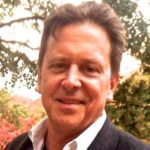 Jefferson Morley is a Washington author and investigative reporter. He worked as an editor and reporter at the Washington Post and Washingtonpost.com for 15 years. His reporting has been published in New York Review of Books, The Nation, New Republic, Salon, Slate, Just Security, and The Intercept.
Jefferson Morley is a Washington author and investigative reporter. He worked as an editor and reporter at the Washington Post and Washingtonpost.com for 15 years. His reporting has been published in New York Review of Books, The Nation, New Republic, Salon, Slate, Just Security, and The Intercept.
He is editor of Deep States (deepstateblog.org), a blog that monitors the world’s intelligence agencies. He is the co-founder and editor of the JFK Facts (jfkfacts.org), a blog about the assassination of President Kennedy.
Morley is the author of three books of novelistic non-fiction. The Ghost is a biography of legendary CIA spymaster James Jesus Angleton. Our Man in Mexico is a biography of Win Scott, the CIA’s top spy in Mexico in the 1960s. Snow-Storm in August tells the story of a White riot in Washington D.C. in 1835.
Morley is also the author of JFK and CIA: The Secret Assassination Files, published by the Future of Freedom Foundation in 2016 and Morley v. CIA: My Unfinished JFK Investigation, published by The Future of Freedom Foundation in 2021.
Douglas Horne
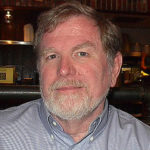 Douglas Horne majored in history at The Ohio State University and graduated Cum Laude in 1974. In 2016 he completed a 40-year career in Federal service: noteworthy accomplishments included 10 years on active duty with the United States Navy (which included service as a junior officer on 3 surface combatants in the Pacific); 10 years of service as a Navy civilian (operations manager of a Navy field office in Pearl Harbor supporting ASW surveillance ships); three years with the staff of the JFK Assassination Records Review Board (where he began as a Senior Analyst and was promoted to Chief Analyst for Military Records); and service with the U.S. Holocaust Memorial Museum (as Manager of the Visitor Services Branch). His three published books are the five-volume memoir Inside the Assassination Records Review Board (2009); a collection of essays titled JFK’s War with the National Security Establishment (2014); and his most recent work (about FDR’s foreign policy during 1940-41, an overview of the early military history of World War II, and American and British cryptography) is a novel and comprehensive new examination of the way in which the United States came to enter the Second World War, the scholarly two-volume Deception, Intrigue, and the Road to War (2017).
Douglas Horne majored in history at The Ohio State University and graduated Cum Laude in 1974. In 2016 he completed a 40-year career in Federal service: noteworthy accomplishments included 10 years on active duty with the United States Navy (which included service as a junior officer on 3 surface combatants in the Pacific); 10 years of service as a Navy civilian (operations manager of a Navy field office in Pearl Harbor supporting ASW surveillance ships); three years with the staff of the JFK Assassination Records Review Board (where he began as a Senior Analyst and was promoted to Chief Analyst for Military Records); and service with the U.S. Holocaust Memorial Museum (as Manager of the Visitor Services Branch). His three published books are the five-volume memoir Inside the Assassination Records Review Board (2009); a collection of essays titled JFK’s War with the National Security Establishment (2014); and his most recent work (about FDR’s foreign policy during 1940-41, an overview of the early military history of World War II, and American and British cryptography) is a novel and comprehensive new examination of the way in which the United States came to enter the Second World War, the scholarly two-volume Deception, Intrigue, and the Road to War (2017).
Mr. Horne has a book and a video series available on the FFF website:
Michael Chesser
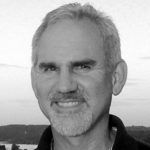 Michael Chesser, M.D. is a neurologist with over 30 years of experience in private practice and academics. He graduated from the University of Arkansas for Medical Sciences in 1981. Prior to his
Michael Chesser, M.D. is a neurologist with over 30 years of experience in private practice and academics. He graduated from the University of Arkansas for Medical Sciences in 1981. Prior to his
neurology residency at UAMS he was a primary care physician in the Navy, and later achieved the rank of CDR in the USNR. After residency, he was a faculty member at UAMS and became Associate Professor of Neurology in 1994, prior to entering private practice. He is board-certified in adult neurology and clinical neurophysiology.
Dr. Chesser became interested in the assassination of President Kennedy after reading JFK and the Unspeakable by James Douglass in 2013. Pursuant to the Deed of Gift, he requested permission and was approved to view the autopsy material related to the cranial wounds of President Kennedy at the National Archives and Records Administration II in College Park. He viewed the original skull x-rays and the House Select Committee on Assassinations (HSCA) enhanced skull x-rays in 2015. Subsequently, he was approved for two visits to view the autopsy photographs and later the digital images of the autopsy photographs which were prepared for the Assassination Records Review Board. At his most recent visit in 2017 he was approved to again view the HSCA enhanced skull x-rays.
Dr. Chesser will discuss the x-ray evidence of a high right frontal entry wound and a right temporal entry (vs exit) wound. He will review the appearance of the x-rays and the autopsy photographs at the Archives, discussing important details which are not visible on the images which are widely circulated on the internet.
David Mantik
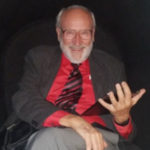 David Mantik is a board-certified radiation oncologist, who (while still young) served on the tenure-track physics faculty at the University of Michigan. He also directed the residency training program at Loma Linda University, where he used protons, electrons, and X-rays to treat cancer. He received his Ph.D. in physics from the University of Wisconsin, his MD from the University of Michigan, completed a post-doctoral fellowship at Stanford University and held a Junior Faculty Clinical Fellowship at the University of Southern California. He has visited the JFK artifacts at the
David Mantik is a board-certified radiation oncologist, who (while still young) served on the tenure-track physics faculty at the University of Michigan. He also directed the residency training program at Loma Linda University, where he used protons, electrons, and X-rays to treat cancer. He received his Ph.D. in physics from the University of Wisconsin, his MD from the University of Michigan, completed a post-doctoral fellowship at Stanford University and held a Junior Faculty Clinical Fellowship at the University of Southern California. He has visited the JFK artifacts at the
National Archives on nine separate days. While there he made hundreds of measurements on the extant JFK autopsy X-rays. His e-book is JFK’s Head Wounds.
Jacob Hornberger
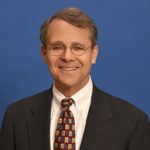 Jacob G. Hornberger is the founder and president of The Future of Freedom Foundation. He was born and raised in Laredo, Texas, and received his B.A. in economics from Virginia Military Institute and his law degree from the University of Texas. He was a trial attorney for twelve years in Texas. He also was an adjunct professor at the University of Dallas, where he taught law and economics. In 1987, Mr. Hornberger left the practice of law to become director of programs at the Foundation for Economic Education. He is the author of The Kennedy Autopsy; The Kennedy Autopsy 2; Regime Change: The JFK Assassination; and The CIA, Terrorism, and the Cold War: The Evil of the National Security State, as well as a contributor to other books published by The Future of Freedom Foundation. He has also delivered a 28-part video series entitled “The JFK Assassination.”
Jacob G. Hornberger is the founder and president of The Future of Freedom Foundation. He was born and raised in Laredo, Texas, and received his B.A. in economics from Virginia Military Institute and his law degree from the University of Texas. He was a trial attorney for twelve years in Texas. He also was an adjunct professor at the University of Dallas, where he taught law and economics. In 1987, Mr. Hornberger left the practice of law to become director of programs at the Foundation for Economic Education. He is the author of The Kennedy Autopsy; The Kennedy Autopsy 2; Regime Change: The JFK Assassination; and The CIA, Terrorism, and the Cold War: The Evil of the National Security State, as well as a contributor to other books published by The Future of Freedom Foundation. He has also delivered a 28-part video series entitled “The JFK Assassination.”
The Future of Freedom Foundation
The Future of Freedom Foundation was founded in 1989 by FFF president Jacob Hornberger with the aim of establishing an educational foundation that would advance the principled, uncompromising case for libertarianism in the context of both foreign and domestic policy.
The mission of The Future of Freedom Foundation is to advance freedom by providing the principled, uncompromising moral and economic case for individual liberty, free markets, private property, and limited government.
As a non-profit, educational foundation, FFF necessarily depends on the financial support of our donors. We welcome your support.
https://www.fff.org/national-security-state-kennedy-administration-webinar/




Geen opmerkingen:
Een reactie posten